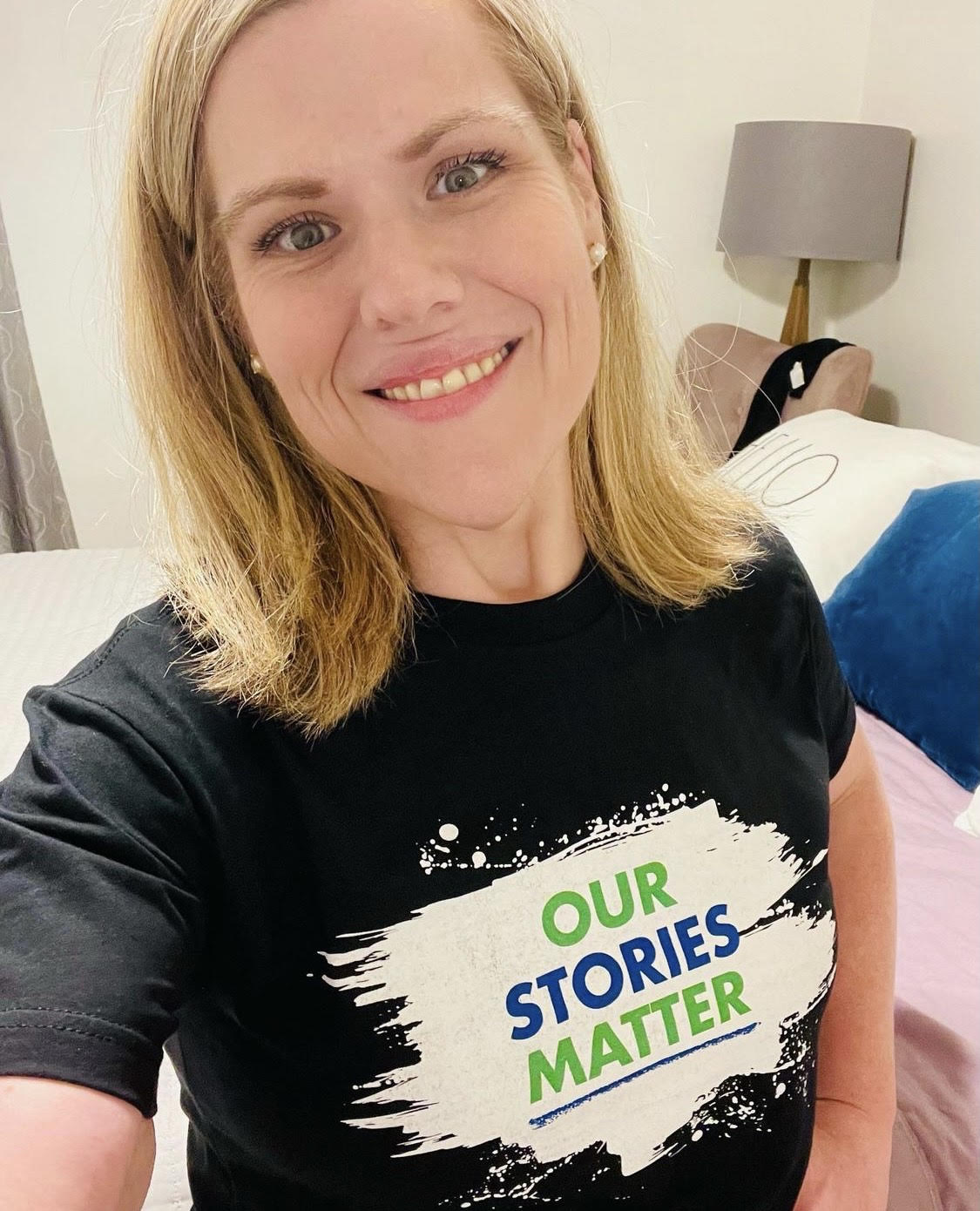Meet Amber Huett-Garcia, a dedicated advocate for obesity care with a passion that spans decades. Amber’s personal experience with obesity has driven her to champion understanding and support for those facing similar challenges. She has held significant leadership roles within the Obesity Action Coalition (OAC), including former Chair of the Board of Directors, and inspires all of us to unite our voices and fight for positive change. One of her current projects as an active volunteer is overseeing the OAC’s Convention Scholarship Fund, which makes it possible for individuals in need to access the high-quality education and uniquely supportive community offered by the Conference each year since 2012.
Amber’s story speaks to the power of advocacy and the impact of one person’s dedication. Join us as we dive into her inspiring journey and learn about her motivation to make a difference.
How has your personal experience with obesity driven your advocacy for change in obesity care?
My own journey with obesity treatment opened my eyes to the need for advocacy. Having dealt with obesity my entire life and having successfully lost 245 pounds, I understand the ongoing struggles individuals seeking treatment face. Access to evidence-based, unbiased and compassionate care has been a lifelong pursuit.
For instance, my initial self-funded bariatric surgery in 2009 highlighted the importance of affordable options. While bariatric surgery remains the most effective treatment option available for obesity, approximately 30% of those in need lack coverage. Advocacy efforts have expanded coverage, but challenges persist. Progress is still needed in areas like pharmacotherapy and other interventions, which is exemplified by the ongoing decade-long fight for the passage of the Treat and Reduce Obesity Act (TROA).
Through my personal advocacy, I’ve learned that while science is crucial, it’s personal stories that really change hearts and drive change. Sometimes it is one story at a time, but we can’t give up on fighting for help to address this chronic, complex, lifelong disease.
How do you combat the stigma around obesity and foster empathy?
Harvard’s bias study reveals that explicit bias is decreasing overall, but implicit bias is increasing. To me, this suggests we know better, but we just aren’t doing better. People often absorb others’ negative attitudes or beliefs about them, fueling self-criticism.
On an individual 1:1 level, I often help people living with obesity to reframe their self-talk and how they speak about others, particularly concerning diet and exercise. Our food and physical activity habits are a significant part of managing obesity, but care encompasses more than willpower; everyone deserves care delivered with dignity and respect. If you’re not getting it, keep looking.
On a systemic level, I often present to medical audiences (surgeons, doctors, patients) on weight bias, People-First Language, creating welcoming environments, and more.
Why is building global obesity awareness important?
Among the Obesity Action Coalition’s (OAC) strategic goals is fostering global advocacy so that countries who want to build a patient group can learn best practices, share tools and strategies, and build community. We have done that by forming the Global Obesity Patient Alliance (GOPA), which has over a dozen countries now participating and more on the horizon.
As the world’s largest obesity-related patient organization, the OAC focuses on activating new groups, empowering existing ones, and collaborating with disease-focused organizations. Notably, the World Obesity Federation (WOF) now includes individuals with lived experience, including myself, in shaping its agenda and policies, enhancing patient engagement worldwide. I began serving on the Board of Trustees last month, which is a huge honor and responsibility. I’m thrilled to bring my knowledge, skills and experience to the organization.
You’re currently working to expand obesity care coverage in Tennessee and advocating for the Treat and Reduce Obesity Act. Why are these efforts important and how they can shape U.S. obesity care and policy?
TROA and the Tennessee legislation aim to broaden Medicare and TennCare coverage, benefiting vulnerable populations. Their focus on preventing comorbidities through specialists and medications can curb obesity’s impact.
First, expanding access to evidence-based care and prevention in Medicare sets the standard for private insurance. A rising coverage tide boat lifts all. Second, people living with a chronic, complex disease with safe, effective treatment options available should have access to them. Full stop.
How can we shift perceptions about obesity care?
Tell your story, and don’t stop when you receive care. In fact, speak louder. There is a lot of shame associated with obesity, but even after lowering my BMI by over 40 points, I’m still living with it. It doesn’t go away. We have to reinforce that there is no such thing as an “after photo” or cure when it comes to obesity. To change attitudes, advocates must show up in numbers. If just 1% of the people living with obesity wrote their member of Congress today, we’d have a completely different coverage picture in one legislative session.
On an individual level, challenge negative stereotypes within conversations and interactions, from media to family discussions and medical consultations. It takes courage to speak up, but courageous dialogue can drive change. It’s worth it.
Finally, why are the OAC’s Annual Convention and Scholarship Fund significant?
The Scholarship Fund ensures vital access to education, advocacy and support for those in need concerning weight and health. This year, for the first time, we fully funded all applications, which is a huge source of pride for me.
The OAC’s Convention reflects its mission. It’s a place where you will find information with none of the snake oil, learn how to advocate and develop your voice, and meet people who “get it.” Over the past decade, our pre-Convention sessions have trained numerous advocates, teaching legislative basics and small steps you can take to advocate. There are even mock sessions to practice having conversations with decision makers, such as health policy aides or legislators.
Convention Attendees often share that this incredible weekend provides a sense of belonging and understanding. Everyone sees a piece of themselves in one another, and years of leadership training have taught me this: everyone wants to feel and be deeply known, to be in spaces where they are the most optimistic versions of themselves, and to feel loved and enough just for who they are. And the OAC’s Convention is a place where I feel all those things.
Do You Want to Share Your Story?
Whether you have a story about navigating obesity, facing weight stigma, or inspiring others, your voice is important. Visit the OAC’s story project at WeightoftheWorld.com to share yours today. Not sure what to say? Consider one of our question prompts to guide you.
If you would like your story to be featured in a future issue of Weight Matters Magazine, please email membership@obesityaction.org.

